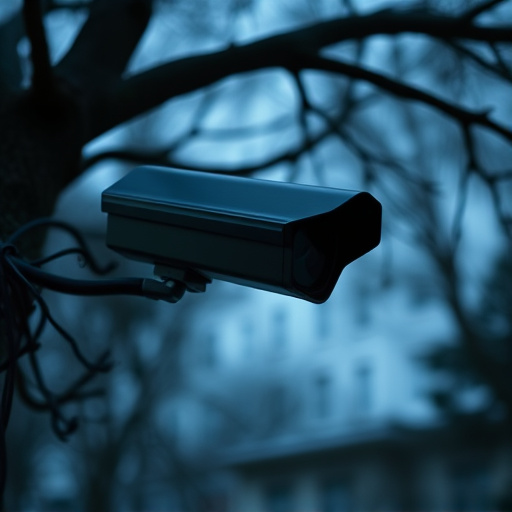While small hidden cameras in nurseries offer landlords peace of mind, deploying them in rental properties without tenant consent is legally risky. Many jurisdictions consider such installations a privacy violation, subject to civil lawsuits and reputation damage. Landlords must inform tenants, obtain permission, and adhere to strict regulations, even for monitoring common areas. Violating tenant rights and data protection laws can result in substantial fines and legal repercussions.
Uncovering secret surveillance spots in rental properties is a growing concern, especially with the prevalence of small, hidden cameras. This article delves into the legal implications of installing such devices, offering insights on their discreet placement in nurseries while balancing privacy and safety. We explore ethical considerations and provide practical tips for detecting and preventing these covert setups, ensuring tenants’ rights and peace of mind in their living spaces.
- Understanding Legal Implications of Hidden Cameras
- Identifying Discreet Placement for Small Cameras in Nurseries
- Ethical Considerations: Balancing Privacy and Safety
- Detecting and Preventing Secret Surveillance Devices in Rentals
Understanding Legal Implications of Hidden Cameras
While small hidden cameras for nursery purposes might seem like a harmless solution for parents seeking peace of mind, deploying such devices in rental properties comes with significant legal implications. Landlords must be aware that installing hidden cameras without explicit consent from tenants is a violation of privacy and can lead to severe consequences, including civil lawsuits and damage to their reputation.
In many jurisdictions, the use of surveillance technology requires adherence to strict regulations, such as informing tenants about the presence of cameras and obtaining their permission. Even for valid security measures like monitoring common areas, landlords must ensure they respect tenant rights and adhere to data protection laws. Failure to do so can result in substantial fines and legal repercussions.
Identifying Discreet Placement for Small Cameras in Nurseries
When it comes to monitoring nurseries, especially in rental properties, small hidden cameras are a popular choice due to their discreet nature. These tiny devices can be strategically placed to ensure safety and peace of mind for both parents and caregivers. Look for tight spaces within the nursery that offer natural cover, such as behind pictures on walls, inside decorative items like stuffed animals or bookshelves, or even under furniture.
The key is to find locations that aren’t immediately obvious but still provide a clear view of the area. This approach allows for constant observation without disturbing the environment or drawing attention to the surveillance system, ensuring the privacy and comfort of those in the nursery while maintaining a level of security.
Ethical Considerations: Balancing Privacy and Safety
While small hidden cameras in a nursery might seem like an extreme measure, it’s crucial to consider the delicate balance between privacy and safety when discussing secret surveillance spots in rental properties. As tenants, we expect our personal spaces to be private sanctuaries where we can feel secure and free from prying eyes. However, landlords and property managers face unique challenges when ensuring the safety and security of their buildings and residents, especially in situations where previous tenants have caused damage or posed risks to others.
The ethical dilemma arises when deciding whether installing hidden cameras is a proportional response. It’s important to remember that these devices can feel intrusive and violate a tenant’s reasonable expectation of privacy. Yet, they may also serve as a powerful tool for deterring criminal activity and protecting vulnerable areas like nurseries, where the presence of small hidden cameras could potentially discourage harmful behavior while ensuring the safety of infants.
Detecting and Preventing Secret Surveillance Devices in Rentals
Detecting secret surveillance devices, like small hidden cameras for nurseries, in rental properties is a growing concern. Landlords and tenants alike should be vigilant about potential security breaches. Regular inspections, especially in common areas and private spaces like bedrooms and bathrooms, can help uncover these devices. Look for any unusual fixtures or cables that might suggest the presence of hidden cameras or listening devices.
Prevention is key when it comes to dealing with secret surveillance. Tenants should be proactive by ensuring their rental property has secure locks, privacy curtains, and regular maintenance checks. Landlords can implement stricter security protocols, including periodic professional audits for any signs of unauthorized surveillance equipment. By staying alert and taking these precautions, individuals can protect their privacy in rental settings.
While small hidden cameras in nurseries may offer a sense of security, it’s crucial to navigate the ethical and legal landscape carefully. Balancing privacy concerns with safety measures is essential, especially in rental properties. Understanding the potential implications of such devices and employing proactive detection methods, like regular inspections, are key to fostering a safe yet private environment for all residents. Remember that open communication between landlords and tenants can help mitigate issues related to secret surveillance spots, ensuring a harmonious living experience.
